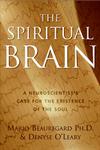Rabbi Daniel Lapin does a great job providing a Torah based (Biblical) framework for how we should view money and the act of making money. He debunks the idea that making money is somehow intrinsically  immoral or unethical. Instead, he shows how making money (and therefore business) is really all about relationships. While there are obvious and sadly very visible abuses in business, Rabbi Lapin’s convincingly argues that this is the exception rather than the rule. The fundamental element of business is about providing a mutually beneficial transaction. You benefit by providing a service that is of benefit to someone else.
immoral or unethical. Instead, he shows how making money (and therefore business) is really all about relationships. While there are obvious and sadly very visible abuses in business, Rabbi Lapin’s convincingly argues that this is the exception rather than the rule. The fundamental element of business is about providing a mutually beneficial transaction. You benefit by providing a service that is of benefit to someone else.
This quote from the book (p. 69) shows some of the perspective on business, relationships and wealth creation:
…The contemporary significance of this message is best revealed by analyzing what economic life might look like for the last person on earth. Imagine some catastrophe that wipes out all human beings but one. Surely the survivor is the wealthiest human ever to inhabit the planet. The survivor owns not only Fort Knox but also all the gold beneath the offices of the Federal Reserve in New York City. He has access to every safe deposit box and owns every office building in the heart of every city. He owns more airplanes and yachts than have ever been owned by anyone in all of human history.
You might peer into the daily life of this unprecedented tycoon. What does he do once the sun goes down on his first day as ruler of the world? Why, read by candlelight, of course, because lights no longer go on at the touch of a switch. Nobody is left to operate the electricity utility. At first he will eat fairly well, at least until the grocery stores (all of which now belong to him) run out of produce. Sooner or later, even the canned foods will spoil. At that point he had better hope that his first harvest ripens successfully before he starves to death.
He may desire to travel. At first, he is free to choose any car on the road because they all belong to him. However, sooner or later they will all have empty gas tanks and will become quite useless to him. If he can catch a horse, he might be able to travel at a rate faster than he could walk, but that is his best hope. On his own, he could not operate a refinery to produce the petroleum that would so ease his life. It quickly becomes apparent that the “richest man in history” is enjoying a living standard slightly below that of a third world subsistence farmer. In contrast, the more opportunities people have to interact and to convey information to one another, the more wealth is created for every participant.
Rabbi Lapin presents “Ten Commandments for Making Money” which are represented by the table of contents:
- Believe in the Dignity and Morality of Business
- Extend the Network of Your Connectedness to Many People
- Get to Know Yourself
- Do Not Pursue Perfection
- Lead Consistently and Constantly
- Constantly Change the Changeable, While Steadfastly Clinging to the Unchangeable
- Learn to Foretell the Future
- Know Your Money
- Act Rich: Give Away 10 Percent of Your After-Tax Income
- Never Retire
Rabbi Lapin’s book is a refreshing perspective on business and making money. His principles are backed by Biblical examples and teachings that lead the reader to understand the win-win scenario of being in business with the right perspective. The small business owner, the tech, the CEO, the clerk, the salesman and the line worker should all take satisfaction from their “business” of work and making money. It is an honorable thing that connects us all, helps everyone involved (employee and employer, owner and client), builds relationships, increases overall “wealth” and prosperity, and provides opportunity for people to give and focus outside of themselves (charity, philanthropy).
Naturally, while the love of money can cause all sorts of evil, the making of money is not evil. Money represents work and creativity in an easily exchanged form. Doing what we can to make money is a reflection of our God given creativity that allows us to provide benefit to ourselves and others.
 Rabbi Dov Baer, the great storyteller (Magid) of the Polish town Mezritch, used to say that a person is like a shofar (ram’s horn, sounded on the Jewish New Year as a ritual of awakening). A shofar sounds only when breath is blown through it; we can say prayers only because God moves through us.
Rabbi Dov Baer, the great storyteller (Magid) of the Polish town Mezritch, used to say that a person is like a shofar (ram’s horn, sounded on the Jewish New Year as a ritual of awakening). A shofar sounds only when breath is blown through it; we can say prayers only because God moves through us. immoral or unethical. Instead, he shows how making money (and therefore business) is really all about relationships. While there are obvious and sadly very visible abuses in business, Rabbi Lapin’s convincingly argues that this is the exception rather than the rule. The fundamental element of business is about providing a mutually beneficial transaction. You benefit by providing a service that is of benefit to someone else.
immoral or unethical. Instead, he shows how making money (and therefore business) is really all about relationships. While there are obvious and sadly very visible abuses in business, Rabbi Lapin’s convincingly argues that this is the exception rather than the rule. The fundamental element of business is about providing a mutually beneficial transaction. You benefit by providing a service that is of benefit to someone else. The Spiritual Brain
The Spiritual Brain